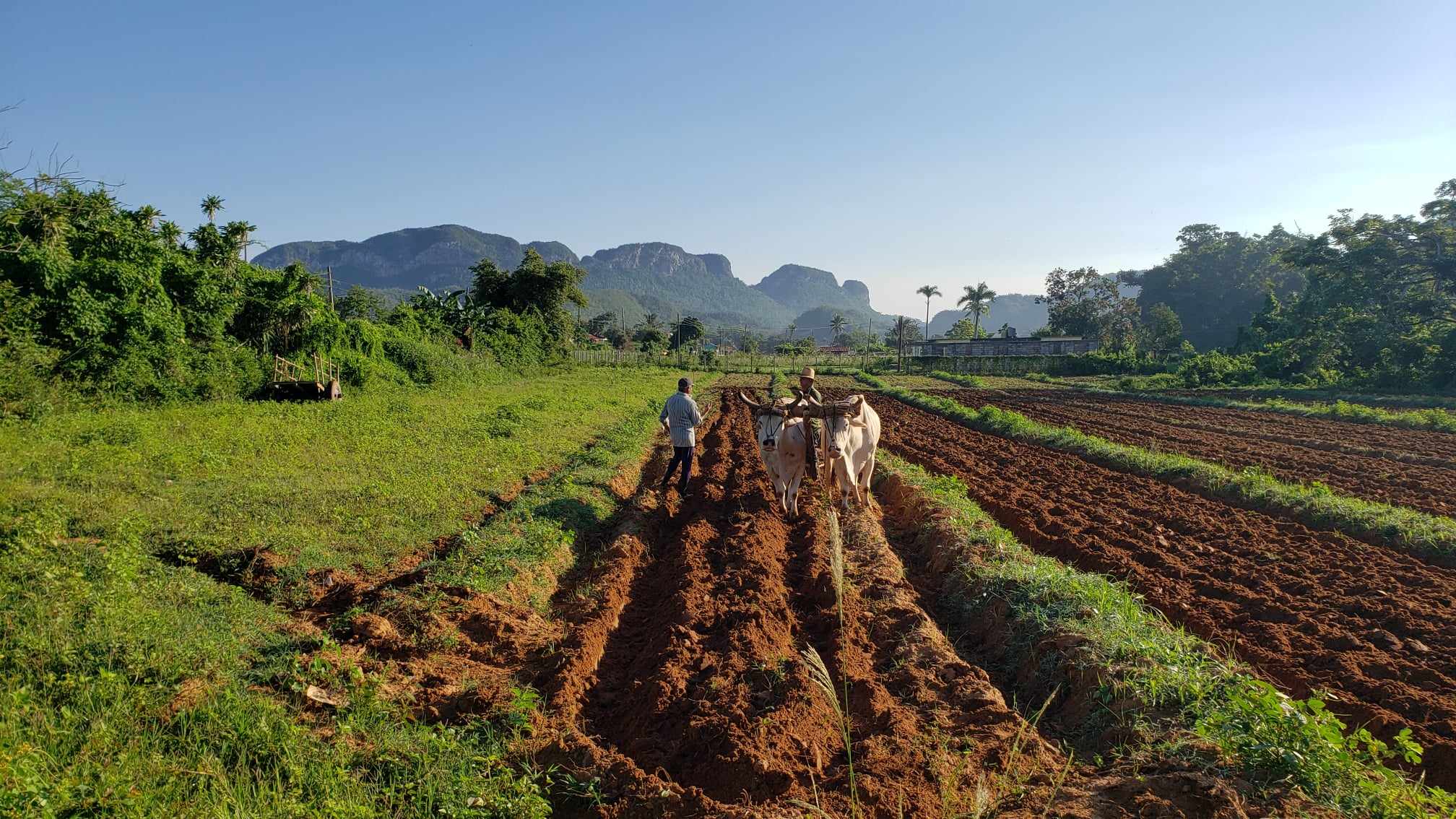
Cuba Study Abroad – Agroecological Practicum
I was interested in studying abroad in Cuba this summer because this was a tropical country with the same equator as Vietnam. I can learn agriculture experiences to solve problems about the weather, insects, breeds, etc. In addition, I had opportunities to gain knowledge and expertise about the efforts to create a more just and ecologically sustainable food system from the team of Cuban Agroecology leaders on farms and gardens across Cuba. The food distribution model I care about the most and aim for is farms/farm communities that directly supply agricultural products to direct customers or farmers’ markets. Cuba is a prime example of how sustainable development is possible and necessary. The country must promote organic agriculture after being forced to abandon the sugarcane monoculture model. Without oil to export, the Cuban government did not have the funds to import food, leaving people at risk of starvation. To solve the problem, farmers in this country are forced to return to traditional farming methods to feed themselves because gasoline or pesticides exist. They must use cows to plow and use natural solutions to replace pesticides.
We visited a Tobacco plantation farm and Finca l’rmonia, and then we had a horseback ride experience for two more hours and observed the way farmers use cows to plow, mountain sigh seeing farms on the way; they start to work early in the morning from 6:00 am to 10:00 am because of the heat in the summer. Most vegetables are maize, taro, sweet potatoes, etc., which I observed on the way by horse riding. Maize is a traditional crop in Cuba, cultivated before the discovery of the Americas. Here, corn is used for human food and animal feed. We discussed much about permaculture, the next generation’s thoughts about policies, agriculture – food system in the US and Cuba through the Cuba trips. We are young and care about the environment; We share ideas, opinions, and considerations/thoughts about readings and lectures to understand the issues we must face in the real world. I always consider how permaculture or agroecology feeds enough food for humans.
We had two days to go to the markets in La Havana to ask about food systems. Most goods are transferred by trucks twice a week. The trucks’ owners harvest vegetables, herbs, and fruits from farms and then they provide for local markets in La Havana. They do not use any chemicals for farming because of being locked up by the US. Some products are from the army that use chemicals. Cuban peasants have been able to boost food production with more sustainable and affordable agricultural inputs by first substituting more ecological inputs for the no longer available imports, and then by making a transition to more agroecological integrated and diverse farming systems (Rosset et. all, 2011). In general, it seems like the pandemic as well as adverse weather was a common factor spoken about by most vendors as to why food prices were rising.
I care about the indigenous agriculture that has cultivated our land based on traditional beliefs in nature. That is the foundation of love and protecting Mother Earth. In Vietnam, indigenous people live precariously on a fragile boundary; one side is the forest, and the other is the industrial society. Forest land in the Central Highlands in Vietnam is gradually disappearing because of the development of society; rich people in urban areas have been buying a lot of ground from indigenous peoples for monoculture farming, resorts, and urban development. An excellent way to protect the land and improve human health is by applying the traditional practices of indigenous people. And then, we can support scientific knowledge to solve problems such as climate change, loss of biodiversity, etc. I do not know about the future, but I always want to have enough health to support farmers because this is the best way to protect the environment. Of course, I have to keep knowledge and experience for myself first.
Therefore, I would like to understand how Cuba manages indigenous agriculture in this course. I hope to connect with agricultural managers to share knowledge and experience to solve general issues such as weather, justice, and sustainability in agriculture. I felt excited and knew that it would be helpful for me to update and improve my knowledge about this field because the agricultural situation in Vietnam is the same as that of Cuba now. We are trying every day to improve it little by little. Focusing on agriculture, I actively monitor and participate in countless more in-depth sharing sessions on forest garden orientation, human positioning in nature, forest garden system design, design water system design.
Thanks so much for supporting my scholarship for this summer abroad.

